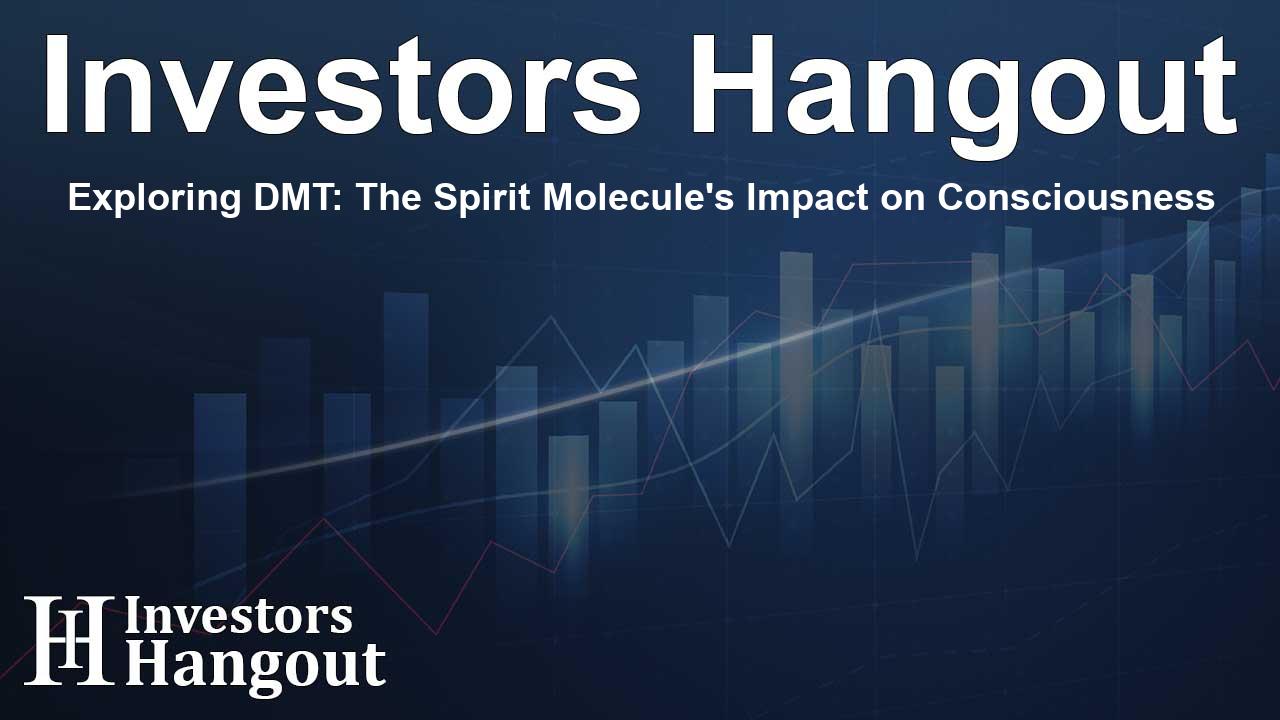Exploring DMT: The Spirit Molecule's Impact on Consciousness

Understanding DMT: The Spirit Molecule
DMT, or dimethyltryptamine, continues to captivate researchers and enthusiasts alike for its intriguing effects on human consciousness. Renowned for provoking intense visions, including mystical encounters and transformative experiences, this compound poses fascinating questions about its role in human perception. Scientists are increasingly exploring whether DMT contributes to extraordinary experiences, such as dreams and even near-death phenomena.
The Natural Presence of DMT in the Human Body
DMT is a compound that naturally occurs in several organisms including plants, animals, and humans. It was first identified in the human body in the 1950s, but it gained widespread interest during the 1990s, thanks to the research of Rick Strassman. In his work, he aptly dubbed DMT 'the spirit molecule', suggesting its possible involvement in mystical experiences, particularly those encountered during extraordinary mental states. Strassman theorized that DMT could be produced in the pineal gland, a small structure in the brain.
DMT in the Pineal Gland
While studies have found DMT in the pineal gland of rats, scientists have discovered that in humans, it is primarily detected in urine, blood, and cerebrospinal fluid. This presents challenges for research, as obtaining definitive evidence for DMT's role within the human body proves complex. Strassman's research led to speculations that during profound psychological events, the body might release DMT, which could be instrumental in creating spiritual experiences.
DMT and Near-Death Experiences
One of the most compelling areas of DMT research involves its association with near-death experiences (NDEs). Fascinating studies have indicated that DMT levels surge in rat brains during cardiac arrest, which hints at a possible connection to the vivid experiences reported by individuals during NDEs. These findings stimulate the notion that DMT may catalyze the intense visions often described in such life-threatening situations.
Hypotheses from Research
Dr. Ede Frecska of the University of Debrecen proposed an intriguing hypothesis that DMT may be released as a survival mechanism of the brain during extreme stress, which could help explain the mystical visions associated with life and death experiences. While this theory warrants more exploration, it signifies the continuing effort to unravel the connection between DMT and human consciousness.
DMT and Dreaming
Beyond its association with near-death experiences, researchers are also investigating DMT's potential role in the dream state. Some theories suggest that DMT may be released during sleep, enhancing the vivid and often spiritual qualities of dreams. Given its ability to cross the blood-brain barrier, it could alter perception and generate profound imagery during dreaming, thus facilitating rich, sensory experiences.
Implications of DMT in Sleep Studies
Research continues to explore how this molecule influences dreaming and perception. Its molecule structure promotes its delivery to the brain effectively, possibly inspiring moments of clarity and hallucinations during deep sleep or sensory deprivation. While this area remains under exploration, the tantalizing prospect of understanding DMT's effects on dreams captivates many researchers.
Navigating the Complexities of DMT Research
Despite the burgeoning interest surrounding DMT, its exact functions in the realm of human consciousness remain largely enigmatic. While scientists have uncovered necessary enzymes for its synthesis within the brain, the broader implications of its presence are still under investigation. Jimo Borjigin, a neuroscientist at the University of Michigan, has expressed the uncertainty surrounding the role of endogenous DMT in human experiences.
Debunking Misconceptions
Interestingly, early concerns suggested a potential correlation between heightened DMT levels and psychiatric disorders. However, recent studies have dismissed this association, indicating no correlation between endogenous psychedelic levels and conditions like schizophrenia. This evolving understanding highlights the necessity for more in-depth research to demystify the implications of DMT.
Conclusion: The Potential of DMT
The investigation into DMT, its role in near-death experiences, dreams, and spiritual experiences reflects a significant and growing field of research. The intricate connections this molecule holds with consciousness, perception, and possibly even the nature of existence itself, makes it a critical focus for future scientific endeavors.
Frequently Asked Questions
What is DMT?
DMT, or dimethyltryptamine, is a naturally occurring psychedelic compound found in various plants, animals, and humans that can lead to profound experiences of consciousness.
How does DMT affect the brain?
DMT interacts with serotonin receptors in the brain, potentially influencing perception, mood, and spiritual experiences during intense psychological states.
Is DMT linked to near-death experiences?
Research suggests that DMT levels may spike during life-threatening situations, which could contribute to the vivid experiences reported during near-death encounters.
Can DMT influence dreams?
Some theories propose that DMT could be released during sleep, possibly enhancing the quality and vividness of dreams, making them feel more real.
What are the challenges in studying DMT?
The rapid metabolism of DMT in the body and its elusive nature poses significant challenges for researchers in understanding its role within human consciousness.
About The Author
Contact Logan Wright privately here. Or send an email with ATTN: Logan Wright as the subject to contact@investorshangout.com.
About Investors Hangout
Investors Hangout is a leading online stock forum for financial discussion and learning, offering a wide range of free tools and resources. It draws in traders of all levels, who exchange market knowledge, investigate trading tactics, and keep an eye on industry developments in real time. Featuring financial articles, stock message boards, quotes, charts, company profiles, and live news updates. Through cooperative learning and a wealth of informational resources, it helps users from novices creating their first portfolios to experts honing their techniques. Join Investors Hangout today: https://investorshangout.com/
The content of this article is based on factual, publicly available information and does not represent legal, financial, or investment advice. Investors Hangout does not offer financial advice, and the author is not a licensed financial advisor. Consult a qualified advisor before making any financial or investment decisions based on this article. This article should not be considered advice to purchase, sell, or hold any securities or other investments. If any of the material provided here is inaccurate, please contact us for corrections.
